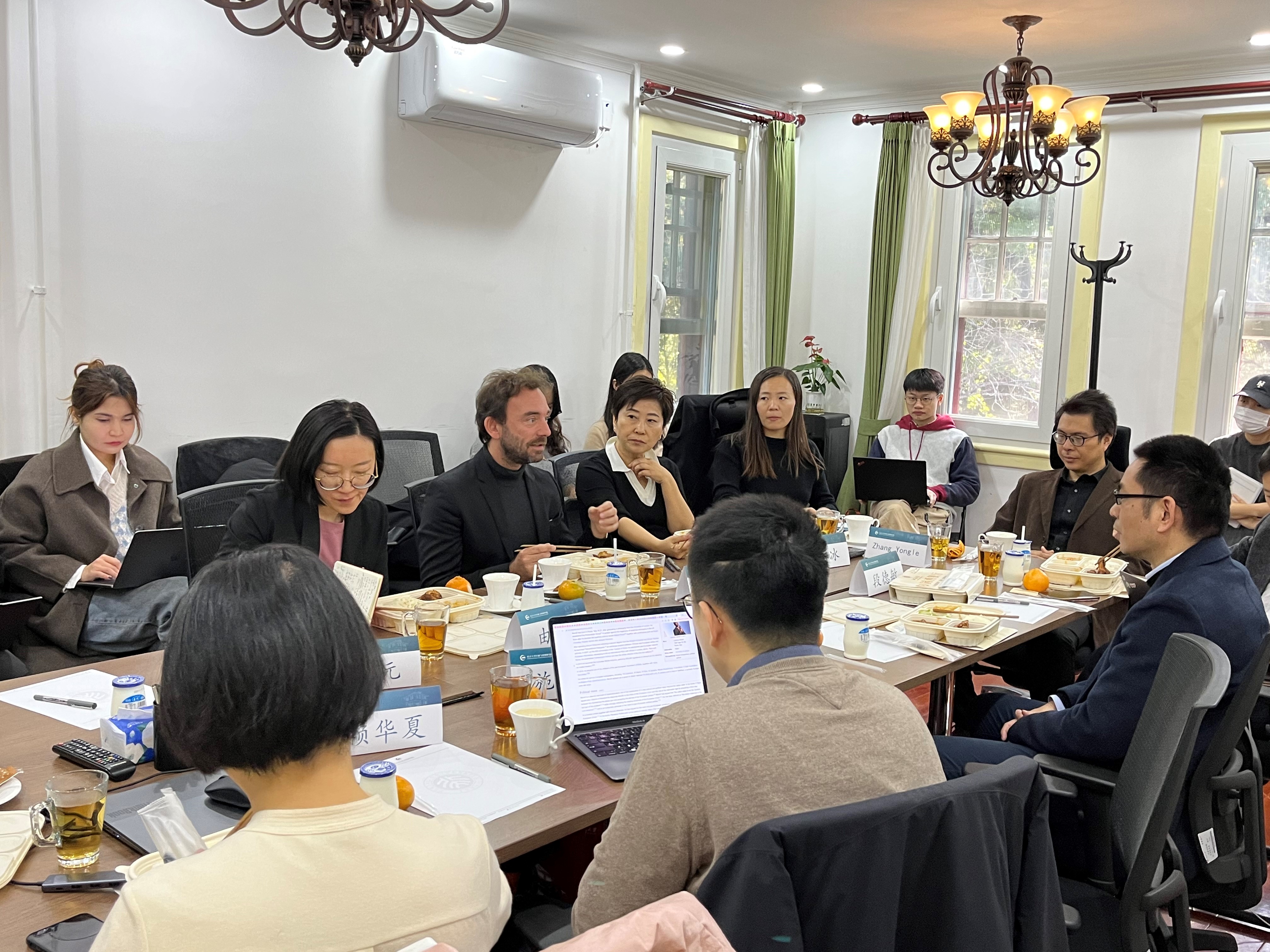
The 12th lecture in the “Adventus Amicorum” salon series was held by the Institute of Area Studies, Peking University (PKUIAS), on November 14, 2023. Lorenzo Marsili, director of the Berggruen Institute Europe, shared his thoughts on the topic, “The Crisis in the Global Order and New Agendas for European and Chinese Intellectuals.” The lecture was moderated by Zhang Yongle, deputy director of PKUIAS. Other participants included Zan Tao, deputy director of PKUIAS; Song Bing, senior vice president of the Berggruen Institute; Duan Demin, deputy director of the Institute of Humanities and Social Sciences of Peking University; Kong Yuan, associate research fellow at the Institute of European Studies of the Chinese Academy of Social Sciences (CASS); Lai Huaxia, assistant professor at the School of International Studies, Peking University; and You Mi, professor of Art and Economics at the University of Kassel. Jennifer Bourne and Li Xiaojiao from the Berggruen Institute also participated in the discussion.
Lorenzo Marsili touched on three main themes in his speech: the end of European dominance in the world order, the need to move beyond simplistic universalism vs relativism dichotomies, and Europe’s potential role as a bridge and laboratory for new forms of international cooperation.
First, Marsili argued that we were witnessing the end of a 200-year period of European universalism and dominance over the global order. While many have focused on the decline of American hegemony, Marsili contended that this was just part of a bigger shift—from a world order governed by one civilization (the West) to a more multipolar order with multiple centers of power. Marsili used the metaphor of the Roman Empire’s conquest of his native Etruscans to illustrate how power dynamics shifted through history.
Marsili then cautioned against simplistic dichotomies of universalism versus relativism. Per Marsili, we should avoid replacing Eurocentric universalism with a kind of fragmented cultural relativism where civilizations act solely based on their traditions. Instead, we must find a third way that recognizes multiplicity while building common ground. Concepts of rights, for example, can draw from both Western contractual approaches and Chinese notions of rites and relationships, he said.
Marsili sees Europe’s decades-long experience grappling with integration beyond the nation-state as useful preparation for this new world order. Per Marsili, despite lack of tech innovation, Europe offers a laboratory for political and philosophical innovation relevant to moving past concepts of absolute national sovereignty. Overcoming historical divisions between European nations could provide lessons for global integration across civilizations to address shared human challenges.
In closing, Marsili expressed hope that this period of fragmentation could lead to more authentic global reunification and shared community down the line. But this could only happen if diversity is embraced, not suppressed as in the past Eurocentric order, he said. Marsili called for Europeans and Chinese intellectuals to engage in long-term dialogue to reconceptualize and rebuild institutions for this emerging new world. Rather than immediately political, this would be a conceptual project to imagine alternative futures decades ahead.
In his summary, Marsili provided a sweeping view of world history to contextualize current shifts in power, cautioned against simplistic thinking, and issued a hopeful call for creative philosophical collaboration across cultures to reimagine international integration. His speech highlighted the need for intellectuals to take a broad view and play a generative role in this time of transition.
During the discussion, the participants continued the discussion of future agendas for Europeans and Chinese intellectuals. Prof. Zhang envisioned great potential for cooperation between Chinese and European intellectuals to propose joint projects advancing new concepts of community. Prof. Zan argued for more cross-civilizational dialogue to develop new inclusive political ideas and move toward a genuine global community. Other discussants at the meeting shared their own experiences and in-depth thoughts on current world order tensions and expressed their views on the possibilities for future research cooperation between the two sides.


